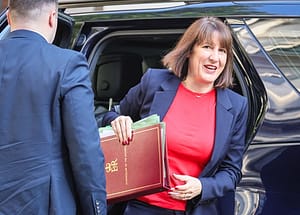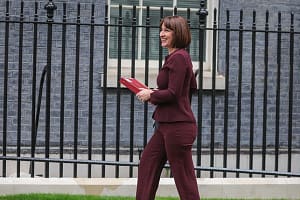From stopping crime in Camden to planning bus routes in Kingston, Mark Smulian explains how businesses are investing in a better London
Hands up everyone who wants to pay more in business rates? Businesses in 20 parts of London do, and two areas may soon follow.
No one likes paying rates, so it must take something pretty unusual to persuade them.
What has done this is the concept of the business improvement district (BID), which allows businesses in a town centre, and occasionally an industrial estate, to collectively finance improvements to their area.
For example, BID members in London have paid for extra policing, increased litter patrols and more proactive marketing. They have also made space available for start-ups, improved safety after dark and even run children’s entertainments.
Some of them also deliver savings to their members by organising joint procurement, notably through a deal with utilities purchasing consultancy Meerkat, negotiated through their umbrella body UKBIDs.
BIDs were originally an idea from the USA used to revive ailing city centres.
They are set up after formal votes among businesses in an area. They must secure support from a majority of businesses both in terms of numbers and rateable values. Once set up they run for five years and every business – occupiers, not landlords – must then pay a levy, usually set at between 1 to 2 per cent of rateable value.
After five years a fresh ballot is needed. Nationally 28 out of 29 have so far reached this milestone and voted to continue their BID, the exception being Keswick.
They must be doing something right, but what?
Camden
Camden’s BID, Camden Town Unlimited, secured its renewal last autumn, helped perhaps by a promise of “free beer supplied by the Camden Town Brewery”, at a meeting.
The BID covers Camden High Street from Chalk Farm to Mornington Crescent and a short distance either side. It has 305 members, who are charged 1 per cent of rateable value, although this is not applied where it is below £60,000.
Chief executive of Camden Town Unlimited, Simon Pitkeathley, says: “Our main work is in crime. There were a lot of issues with drug dealers in Camden and we worked with the police and local authority to put in private security, not actual wardens but a uniformed presence that makes a difference.”
Camden attracts creative types, and the BID has rented a disused warehouse in which it now rents out space to 40 start-up creative businesses. It is also working with Transport for London on a £10m long-term plan to narrow the road and widen the pavement between Chalk Farm and Mornington Crescent.
A section is complete between Camden Town station and a canal bridge, which has allowed shoppers to circulate more easily with less danger from traffic. The next stage will be to create more space for pedestrians at Britannia Junction, the crossroads in the middle of Camden Town.
Pitkeathley says: “I see BIDs as not just bodies that do works but as lobbyists for economic regeneration by working with the public bodies on behalf of businesses.”
Ilford
Ilford’s BID, Ilford Town, covers the high street, Exchange Shopping Centre and the two main roads into the town centre.
Ilford Town chairman Marc Myers, who is also Exchange’s general manager, says: “The BID was set up five years ago and I didn’t even know what a BID was.” It has 500 members, almost all retailers, who pay 1.2 per cent of rateable value. “Before the ballot there was a clear message from local business that safety and cleansing were their main concerns,” Myers says.
“There was a perception that Ilford was not safe after dark, so we wanted to create a better vibe.”
It has worked with Redbridge Council to “buy” the services of extra police officers for the town centre “so there is a ringfenced budget for three officers and a sergeant to be there, and we have seen crime figures fall”, Myers says.
Ilford Town has also paid Redbridge to bring in extra cleansing contractors to do deeper cleaning than normal, including to shop fronts and stonework. Ilford faces tough competition from the newly-opened Westfield shopping centre in Stratford and the BID has led promotion of the area, including establishing a street market.
“We run events such as Wacky Wednesdays which are free events for kids, since this is a very family orientated area,” Myers says.
Kingston upon Thames
Kingston likes to see itself as a rival to London’s West End for its retail offerings and its BID concentrates on cleaner and safer streets, better transport and bringing in customers, says Liz Ellis, marketing executive at Kingstonfirst (the town’s BID).
Its five-year term ended in 2009 and was renewed by a 70 per cent vote in favour among the 374 voting businesses.
Kingstonfirst runs a street market, town centre open spaces and a tourist information kiosk. Much of its work is with Kingston’s thriving night-time economy, a field where success can generate crime and disorder.
Ellis explains: “We employ a manager who works with the night economy businesses and we manage the town centre radio network for security guards.”
Kingstonfirst also runs a kiosk for licensed private hire cars, so revellers can confidently book a safe ride home, and has used address data from club members to demonstrate to Transport for London (TfL) where they are travelling to, successfully making the case for more night buses. Information sharing has also created a network where if someone is ejected for violence from a nightclub they can be easily barred from all others.
UKBIDs chief executive Julie Grail says they may one day turn into vehicles that raise even more money to help businesses.
“At the moment BIDs cannot borrow against their revenue, but borrowing has happen in the USA, where BIDs also do bond issues for major capital infrastructure works,” she says. “There is the prospect of that here, but at the moment BIDs seek leverage from public sector bodies.”
Grail says: “People thought there would be a fall off in support with the recession, but that has not been the case as people see the BID as a way of countering the recession’s effect.”
If there is a BID proposal in your area you’ll get a vote, but possibly not the free beer.
London BIDs
- Angel
- Bankside
- Bayswater
- Bexleyheath
- Camden Town
- Croydon
- Ealing Broadway
- Hainault Business Park
- Hammersmith
- Heart of London (Leicester Square)
- Kingston
- Leytonstone
- London Bridge
- London Riverside (Havering)
- Midtown (Holborn)
- Paddington
- Park Royal Industrial Estate
- Victoria
- Waterloo
- West End (Bond, Oxford and Regent Streets)
In preparation:
- Vauxhall
- Wimbledon





Leave a Comment